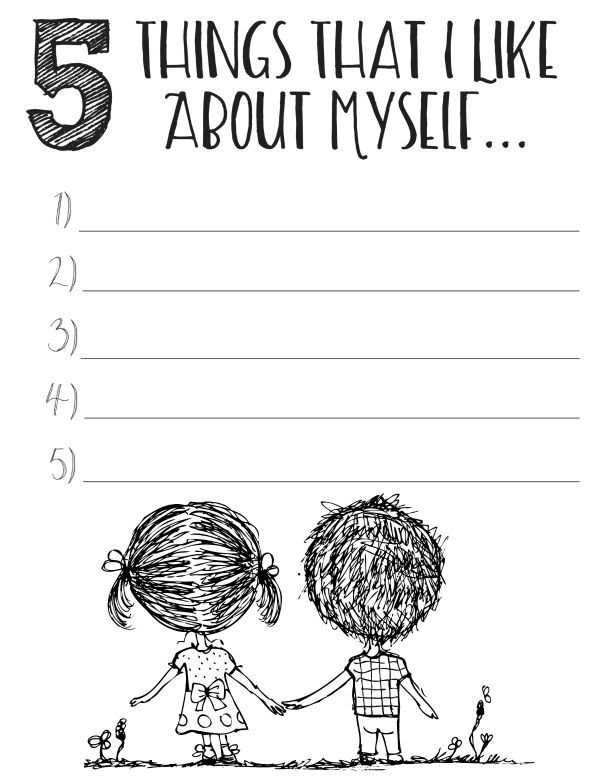Self-esteem is crucial for a child’s overall well-being and success. It shapes how they see themselves and their abilities, affecting their confidence and motivation. As parents and educators, it’s important to nurture and enhance a child’s self-esteem from a young age.
One effective way to help children develop a positive self-image is through the use of self-esteem worksheets. These worksheets are designed to engage kids in activities that promote self-awareness, self-acceptance, and positive thinking.
Self Esteem Worksheets for Kids
Self-esteem worksheets for kids come in various forms and can be tailored to suit different age groups and skill levels. These worksheets encourage children to explore their strengths, talents, and accomplishments while also addressing any negative self-perceptions they may have.
One popular type of self-esteem worksheet is the “Self-Compliment Journal,” where children are encouraged to write down positive things about themselves each day. This helps them focus on their strengths and achievements, boosting their self-esteem in the process.
Another common worksheet is the “Positive Affirmations Poster,” where kids can write or draw positive affirmations about themselves and display them in their room. This visual reminder helps reinforce positive self-talk and self-acceptance.
Additionally, there are worksheets that focus on self-reflection and goal-setting, helping children identify areas where they can improve and set achievable goals to work towards. By building a growth mindset and fostering resilience, kids can develop a strong sense of self-worth and confidence.
It’s important to regularly engage children in these self-esteem activities to help them internalize positive beliefs about themselves. Consistent reinforcement and encouragement are key to building a strong foundation of self-esteem that will benefit them throughout their lives.
In conclusion, self-esteem worksheets for kids are valuable tools for promoting self-awareness, self-acceptance, and positive thinking. By incorporating these activities into a child’s daily routine, parents and educators can help boost their self-esteem and set them up for success in all areas of life.
